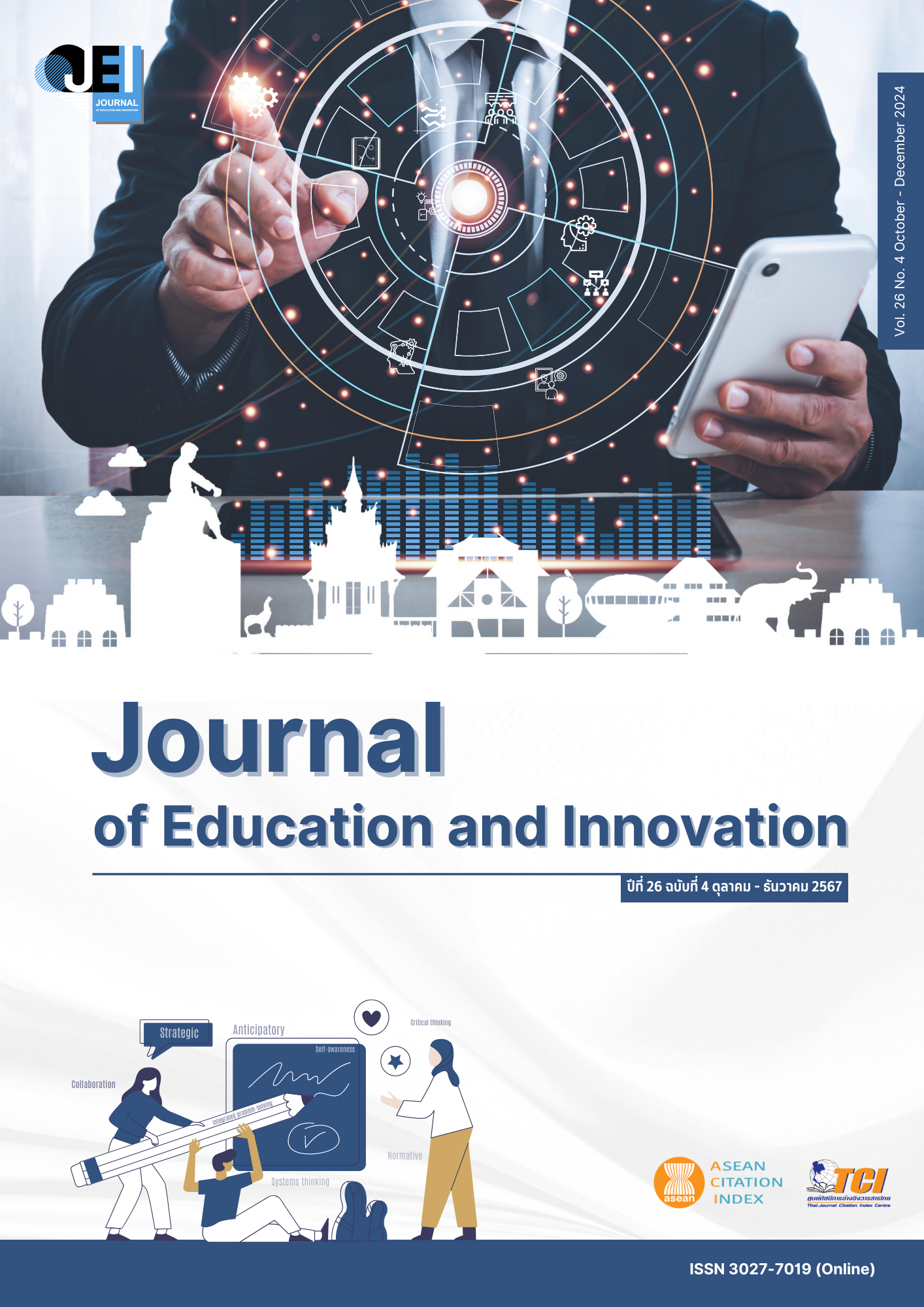APPROACH OF THE CULTIVATION OF ENLIGHTENED CITIZENS BASED ON SUFFICIENCY ECONOMY PHILOSOPHY
Main Article Content
Abstract
The objectives of this research are twofold: 1) to study the characteristics of enlightened citizens according to the sufficiency economy philosophy, and 2) to examine the approach for developing enlightened citizens based on the sufficiency economy philosophy. The research employs qualitative methods conducted in two phases. In Phase 1, informants consisted of 5 experts selected through purposive sampling, and a semi-structured interview served as the research instrument. The collected data underwent analysis through content analysis. In Phase 2, another set of 5 experts was chosen using purposive sampling, and a semi-structured interview was utilized as the research instrument. The data collected were also subjected to content analysis. The results revealed six characteristics of enlightened citizens according to the sufficiency economy philosophy: (1) being a good person with discipline, capable of leading a good and happy life; (2) possessing mental self-reliance and characteristics of a society and economy sufficient for a comfortable life; (3) demonstrating wisdom, true knowledge, prudence, and expertise according to one's aptitude; (4) exhibiting morality, honesty, integrity, and responsibility towards the public; (5) adhering to good decision-making principles, characterized by moderation and reasonableness; and (6) maintaining robust internal immunity in all four aspects, namely material immunity, social immunity, environmental immunity, and cultural immunity. Additionally, the approach to the cultivation of enlightened citizens based on the sufficiency economy philosophy comprises three main stages: school age emphasis on developing knowledge and mind by setting challenging situations for hands-on practice through classroom activities or integrating studies in various subjects, working age focus on developing their own potential according to the context of each individual's work duties by applying the philosophy of Sufficiency Economy to create the correct thought process. Additionally, workshops are organized to develop personnel and provide knowledge and understanding of the philosophy of Sufficiency Economy, and the elderly emphasize spiritual development through activities that integrate the philosophy of Sufficiency Economy, fostering interaction between different age groups in the community.
Article Details

This work is licensed under a Creative Commons Attribution-NonCommercial-NoDerivatives 4.0 International License.
The owner of the article does not copy or violate any of its copyright. If any copyright infringement occurs or prosecution, in any case, the Editorial Board is not involved in all the rights to the owner of the article to be performed.
References
Arunyakul, W., Srakeaw, S., Ritthithada, P., Panyamee, P., & Huadsri, P. (2022). Promoting the usage of the sufficiency economy innovation for improving quality of life in the Thai elderly. Bangkok: Technical Promotion and Support Office 6.
Khammanee, T. (2023). Decoding the philosophy of Sufficiency Economy to teach thought processes. Bangkok: Chulalongkorn University press.
Kosanpipat, S., & Kosanpipat, P. (2018). The model of the development of the quality of life for the elderly in the north rural by participatory of the local organization. Chiang Mai: Chiang Mai Rajabhat University.
Ministry of Foreign Affairs. (2022). Annual Report 2022. Retrieved December 15, 2023 from https://image.mfa.go.th/mfa/0/mkKfL2iULZ/annual_report/Annual_Report_2022.pdf
Office of the Permanent Secretary, Ministry of Interior. (2017). A manual for driving the adoption of the philosophy of Sufficiency Economy into practice until it becomes a way of life. Bangkok: Danex Inter Corporation.
PhraDhamma Sakyawongwisut. (2023). Principles of education for civilized development. Bangkok: The world fellowship of Buddhists.
Phrakhu Vinaidhorn Sanchai. (2020). Strengthening Buddhist ethics in Thai society. Lanna Academic Journal, 9(2), 101-108.
Wannaklang, K., & Pakdeewong, P. (2022). The NAVAKOVADA’s Principles as the means of living in the disruption society. Dhammathas Academic Journal, 22(3), 117-127.
Wattanachai, K. (2021). Looking back through the past, through the present, towards a sustainable future. The Journal of Chulabhorn Royal Academy, 3(1), 1-7.


